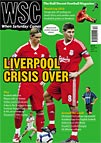 Twitter has changed reporting and news analysis. Mark Segal looks at its footballing role
Twitter has changed reporting and news analysis. Mark Segal looks at its footballing role
October was a good month for fans of microblogging site Twitter after they were credited with both protecting the integrity of Parliament and bringing Daily Mail columnist Jan Moir to book over her article on the death of Stephen Gately. And the site notched up a significant hat-trick when Rangers midfielder Maurice Edu used his feed to reveal he had been racially abused by fans after the club’s Champions League defeat to Unirea Urziceni.
The American’s tweet – “Not sure what hurt more: result last nite or being racially abused by couple of r own fans as I’m getting in my car” – was immediately picked up by his Twitter followers and made its way into the press whereupon Rangers launched an enquiry to find the culprits.
Although the darling of the media for a couple of years, football’s first real dealings with the site, which allows you to say anything as long as it’s in 140 characters or less, came in July when Darren Bent vented his frustrations about the delay in his move to Sunderland.
The sometime England forward made this heartfelt plea to Spurs chairman Daniel Levy: “Do I wanna go Hull City NO. Do I wanna go Stoke NO. Do I wanna go Sunderland YES. So stop fucking around, Levy.” Though forced to apologise for it at the time, it seemed to do the trick as he soon completed the move. Bent suspended his tweeting for a while, but happily for his almost 15,000 followers he is back (@DBThetruth), just one of a growing number of footballers using the site.
The advantages for the player are obvious, allowing them to bypass traditional media and get their message across directly to supporters. Fans can put their questions to players who often seem far more willing to engage in a conversation online than they otherwise would be.
But revealing all can have its pitfalls. Hull’s American import Jozy Altidore (@jozyAltidore17) was the latest in a long line of sportsmen forced to apologise for tweeting something he shouldn’t when he revealed he’d been dropped for the Tigers’ game against Portsmouth for turning up late. And players are going to have to be even more careful in the future as journalists have been quick to spot a new source for stories and are logging on too.
Hacks from all the tabloids are setting up accounts, while the Daily Telegraph’s football correspondent Henry Winter (@henrywinter) has over 5,000 followers. However, he chooses not to follow anyone on the site and never replies to questions. This approach has also been taken by many the clubs and organisations. The FA, UEFA and FIFA all probably think they are at the forefront of the social media revolution by tweeting their latest news but, in the words of social media experts, they are merely reporting not responding. Ask the FA (@thefadotcom) when you’ll be able to buy Wembley tickets and you’ll get no answer. But if you want to be force fed details of every England match from Under-18s upwards then log on.
Liverpool are a notable exception providing their 50,000-plus followers with both news, insight and also, crucially, answers and replies. Man Utd’s Twitter feed only has 20,000 followers which again can be put down to the report-only stance they take. Arsenal have a similar one-way conversation but have at least recognised the way the wind is blowing and are advertising for a general manager for their broadband services who will “develop and implement integrated digital marketing strategies across the full range of club channels”.
Clubs will soon have to embrace the changing nature of new media. In fact it’s possible that they will lose their authoritative voice if they don’t engage. By simply pumping out the same old propaganda while players and fans discuss the real issues, they could become as irrelevant as the hoardings around grounds which used to tell you the other half-time scores.
The clubs may not like it but Twitter is here to stay. It’s only going to get easier to post your message, record your thoughts and break out from the shackles clubs have put on their players in recent years. It won’t be long until players are tweeting from the bench. The onus is on the top clubs to get their heads round the new order fast and work out how they are going to deal with it.
From WSC 274 December 2009